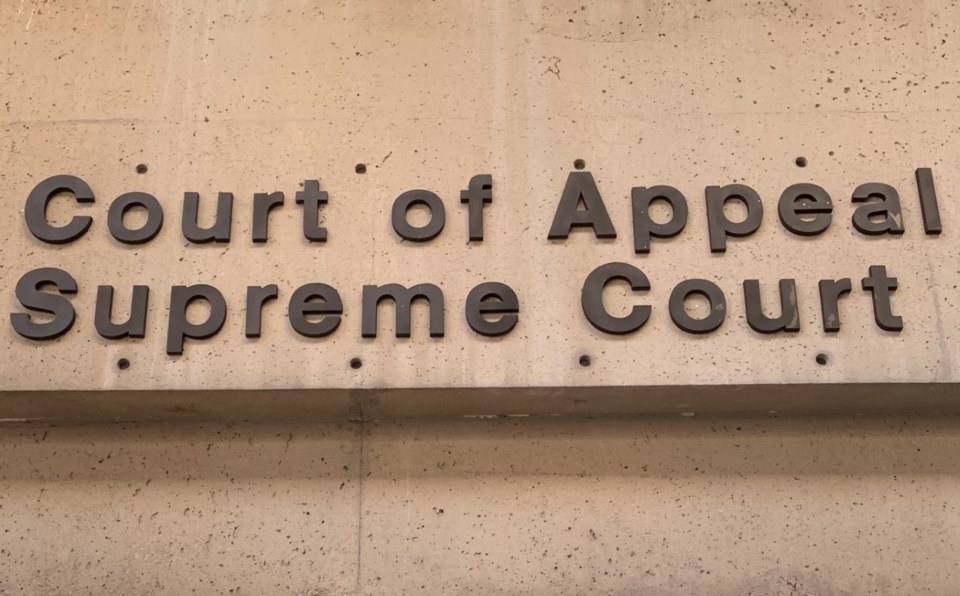A Richmond man who smashed car lot vehicles with a hammer, led police on a high speed chase through Stanley Park and tried to run over a grocery store employee won’t be getting a further sentence change.
“It is not in the interests of justice to grant leave to appeal,” Justice Ronald Skolrood said in his Oct. 31 decision released Nov. 8.
Tong Sun, a.k.a. Heintz Sun, was initially sentenced in Richmond Provincial Court to a suspended sentence with three years’ probation.
On a first appeal to B.C. Supreme Court, that was changed to a conditional discharge with three years’ probation.
Richmond Provincial Court Judge Diana Vandor said in the first decision June 3, 2022 that Sun struck different cars at dealerships in three separate incidents in 2020.
He caused $40,000 in damages, B.C. Supreme Court Justice Catherine Murray said in allowing Sun’s appeal in a May 3, 2023 decision.
“He attended car lots to smash cars not just once but a number of times. He used his car as a weapon not just once but twice. He caused two police pursuits,” Murray said. “It is a miracle that no one was injured.”
On the day of one the last dealership incident, Sun was involved in a dangerous driving offence involving protracted police chases through residential areas, speeding through red lights and against the flow of traffic.
“Police caught up with Mr. Sun in downtown Vancouver and followed him into Stanley Park. At that time, the park was closed to vehicles because of the pandemic. It remained open to bikes and pedestrians. Mr. Sun drove at high speed through the park, going against the flow of traffic. Police were eventually able to stop his vehicle using a spike belt,” Murray said.
He was convicted of mischief over $5,000, dangerous driving and assault with a weapon — a car in a case where he reversed at a Richmond store employee who tried to stop him after Sun had shoplifted $68 worth of tea.
Both Vandor and Murray noted Sun’s mental health challenges, the latter noting Vandor did not have the benefit of a recent psychiatric report.
A psychiatrist told Murray Sun likely had schizoaffective disorder at the time of the offences; without that, he probably would not have committed the offences, court heard.
Sun reported he was hearing voices.
“The voices told him that they were from the Canadian military but spoke mostly in Chinese,” Murray said.
Given Sun’s mental health history, Murray said the probation order would allow Sun to get needed help.
She said his medication regimen needed to be altered to avoid the risk he potentially poses to the community should he go untreated and unsupervised until he is stable.
On appeal, Sun objected to this, alleging Murray erred by imposing a conditional rather than absolute discharge and by ordering that he submit to medication and treatments prescribed by his treating professional in the absence of his consent.
Skolrood said the appeal court only has jurisdiction on questions of law, not evidence.
“The applicant’s proposed appeal raises no issues of law and has no reasonable prospect of success,” Skolrood said. “The sentencing appeal judge took the view that a conditional discharge was necessary to safeguard public safety. This risk assessment is a matter of judicial discretion firmly within the province of the sentencing appeal judge.”



